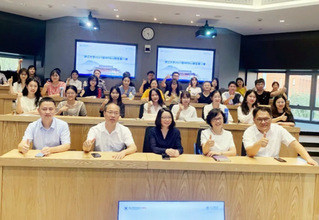题目:If Goodwill Amortization Comes Back: A Quasi-Natural Experiment
时间:2024年6月7日(周五)10:00-12:00
地点:浙江大学紫金港校区yl23411永利A423
主讲人:Joseph Zhang教授,Bowling Green State University
主持人:董望副教授,yl23411永利
主讲人简介:

Dr. Joseph Zhang is a department chair & professor of accounting at Bowling Green State University in the U.S. His research focuses on auditing, financial accounting, and international accounting. Over his career, he has published 50 peer-reviewed academic papers. Notably, 13 publications have been featured in prestigious American Accounting Association journals. According to the 2023 BYU Accounting Rankings, Dr. Zhang holds impressive positions (Archival 6), ranking #32 in All Topics, #22 in Audit, and #74 in Financial. Moreover, he has contributed to other top-notch accounting journals such as Asian Review of Accounting, British Accounting Review, Journal of Forensic Accounting Research, and Managerial Auditing Journal as an associate editor or conference editor.
摘要:
Would current subsequent accounting for goodwill provide incremental information or potentially distort the presentation of goodwill? Both FASB and IASB have carried out projects in recent years to advance the potential revision of the methods by reintroducing the amortization-and-impairment regime or improving the impairment-only regime, which has not resulted in perfect solutions. On January 4, 2019, the China Accounting Standards Committee unexpectedly released a document expressing a preference for reintroducing goodwill amortization. Using the release as a quasi-experiment, we show that the stock market reacts positively to the announcement and firms recognize incremental goodwill impairment losses subsequently. The responsive goodwill impairment charges are higher among firms with poorer ex-ante internal control and greater ex-post external oversight. We also observe that firms simultaneously improve their disclosure of impairment tests. Our findings provide insights into the critical debates surrounding the treatment of goodwill and the role of standard setters and regulators in shaping accounting standards.





